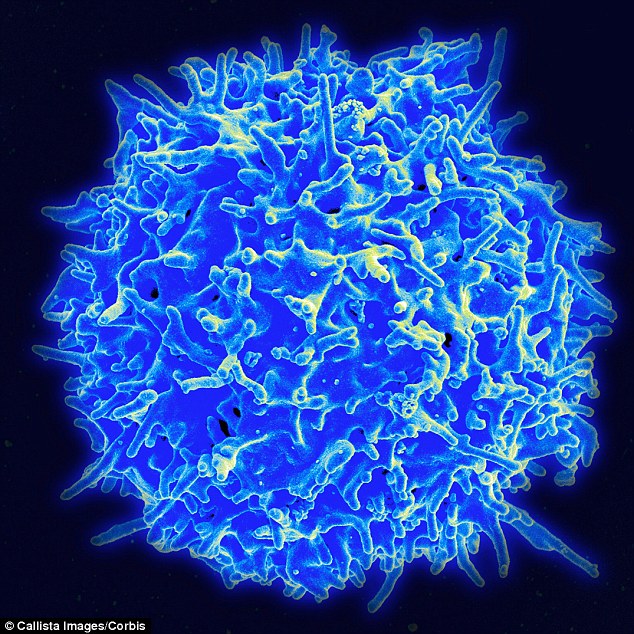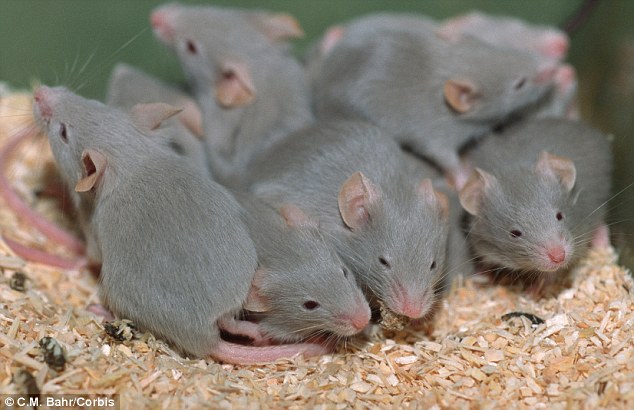AGXStarseed
Well-Known Member
(Not written by me)
Have scientists found a cure for autism? Blocking specific cells during pregnancy can help prevent the disorder developing
In a major breakthrough in the treatment of autism, researchers believe they have discovered cells that play a role in how the disorder develops in the brains of babies.
By blocking cells that produce a chemical called IL-17a in pregnant mice, the scientists were able to restore normal brain structure in the brains of the pups.
Not only does the discovery go some way to confirm viral infections during pregnancy can play a role in how autism develops, the findings take a step towards treatment or even a cure for the disorder.
Autism Spectrum Disorder (ASD) can cause a wide range of symptoms, which are often grouped into two main categories.
These include difficulty understanding and being aware of other people's emotions and feelings and problems taking part in, or starting, conversations.
Patterns of thought are another key area, namely restricted and repetitive patterns of thought or physical movement, such as hand tapping or twisting, and becoming upset if these set routines are disrupted.
The new study centred on T lymphocytes, which are immune cells that react to infections by creating 'a cellular army' that attacks the invading microbes.
A subset of T cells, Th17 cells, release interleukin 17 (IL-17) - a signalling protein that boosts how a body responds to, and fends off infections.
However, when the levels of this protein are too high, or off target, they can lead to autoimmune diseases such as asthma and inflammatory bowel disease.
The newly published study found that activation of Th17 cells and the production of IL-17a do play a role in creating behavioural abnormalities in embryos.
Several previous studies on humans have found a link between mothers catching a viral infection during pregnancy and the risk of their child developing ASD.
Until now, though, the mechanisms behind this were unknown.
To test this theory, the research team from New York University Langone injected mice with an acid that mimics a viral infection.
This then caused the pregnant mice's immune system to produce IL-17a.

The study centred on T lymphocytes, immune cells that react to infections. A stock image of a T cell is shown. A subset of T cells, Th17 cells, release IL-17 - a signalling protein that boosts how a body fends off infections. However, high levels of this protein have been linked to the development of autism symptoms

Researchers injected mice (stock image) with an acid that mimics a viral infection. This caused the pregnant mice's immune system to produce the chemical called IL-17a. Mice exposed to higher IL-17a levels in the womb exhibited autism-like symptoms when they were born but blocking the chemical reverted the changes
Mice exposed to higher IL-17a levels in the womb exhibited autism-like symptoms when they were born.
For example, they had trouble telling the difference between another live mouse and a toy.
They interacted with both equally, whereas normal mice spent more time socially interacting with live mice.
Mouse pups are known to cry to their mothers, but recordings also revealed that offspring exposed to IL-17a made abnormal calls.
Mice exposed to this kind of immune response were additionally more likely to bury marbles found in their cages one after the other in a compulsive, repetitive behaviour.
Yet, blocking the action of Th17 cells completely restored normal structure and function to the brains of the study offspring.
This was regardless of whether the changes were achieved by treatment with antibodies or by shutting down the IL-17a gene.
'To our knowledge, this is the first study to identify a specific population of immune cells that may have a direct role in causing behaviors linked to autism,' said immunologist study author Dan Littman at NYU Langone.
'With these study results, Th17 cells, as well as specific proteins they produce, become candidate therapeutic targets as part of future efforts to prevent autism.'
Dr Littman and his colleagues have filed a patent on their methods.
However, they were keen to stress it may be many years before a treatment could be developed using the technique.
The research is published in the journal Science.
SOURCE: http://www.dailymail.co.uk/sciencet...egnancy-help-prevent-disorder-developing.html
Have scientists found a cure for autism? Blocking specific cells during pregnancy can help prevent the disorder developing
- Mice exposed to high IL-17a levels in the womb exhibited autism symptoms
- This is a signalling protein that boosts how a body fends off infections
- Blocking related cells restored normal structure to the brains of the pups
- This was regardless of whether this was achieved by treatment with antibodies or by shutting down the IL-17a gene completely
In a major breakthrough in the treatment of autism, researchers believe they have discovered cells that play a role in how the disorder develops in the brains of babies.
By blocking cells that produce a chemical called IL-17a in pregnant mice, the scientists were able to restore normal brain structure in the brains of the pups.
Not only does the discovery go some way to confirm viral infections during pregnancy can play a role in how autism develops, the findings take a step towards treatment or even a cure for the disorder.
Autism Spectrum Disorder (ASD) can cause a wide range of symptoms, which are often grouped into two main categories.
These include difficulty understanding and being aware of other people's emotions and feelings and problems taking part in, or starting, conversations.
Patterns of thought are another key area, namely restricted and repetitive patterns of thought or physical movement, such as hand tapping or twisting, and becoming upset if these set routines are disrupted.
The new study centred on T lymphocytes, which are immune cells that react to infections by creating 'a cellular army' that attacks the invading microbes.
A subset of T cells, Th17 cells, release interleukin 17 (IL-17) - a signalling protein that boosts how a body responds to, and fends off infections.
However, when the levels of this protein are too high, or off target, they can lead to autoimmune diseases such as asthma and inflammatory bowel disease.
The newly published study found that activation of Th17 cells and the production of IL-17a do play a role in creating behavioural abnormalities in embryos.
Several previous studies on humans have found a link between mothers catching a viral infection during pregnancy and the risk of their child developing ASD.
Until now, though, the mechanisms behind this were unknown.
To test this theory, the research team from New York University Langone injected mice with an acid that mimics a viral infection.
This then caused the pregnant mice's immune system to produce IL-17a.

The study centred on T lymphocytes, immune cells that react to infections. A stock image of a T cell is shown. A subset of T cells, Th17 cells, release IL-17 - a signalling protein that boosts how a body fends off infections. However, high levels of this protein have been linked to the development of autism symptoms

Researchers injected mice (stock image) with an acid that mimics a viral infection. This caused the pregnant mice's immune system to produce the chemical called IL-17a. Mice exposed to higher IL-17a levels in the womb exhibited autism-like symptoms when they were born but blocking the chemical reverted the changes
Mice exposed to higher IL-17a levels in the womb exhibited autism-like symptoms when they were born.
For example, they had trouble telling the difference between another live mouse and a toy.
They interacted with both equally, whereas normal mice spent more time socially interacting with live mice.
Mouse pups are known to cry to their mothers, but recordings also revealed that offspring exposed to IL-17a made abnormal calls.
Mice exposed to this kind of immune response were additionally more likely to bury marbles found in their cages one after the other in a compulsive, repetitive behaviour.
Yet, blocking the action of Th17 cells completely restored normal structure and function to the brains of the study offspring.
This was regardless of whether the changes were achieved by treatment with antibodies or by shutting down the IL-17a gene.
'To our knowledge, this is the first study to identify a specific population of immune cells that may have a direct role in causing behaviors linked to autism,' said immunologist study author Dan Littman at NYU Langone.
'With these study results, Th17 cells, as well as specific proteins they produce, become candidate therapeutic targets as part of future efforts to prevent autism.'
Dr Littman and his colleagues have filed a patent on their methods.
However, they were keen to stress it may be many years before a treatment could be developed using the technique.
The research is published in the journal Science.
SOURCE: http://www.dailymail.co.uk/sciencet...egnancy-help-prevent-disorder-developing.html